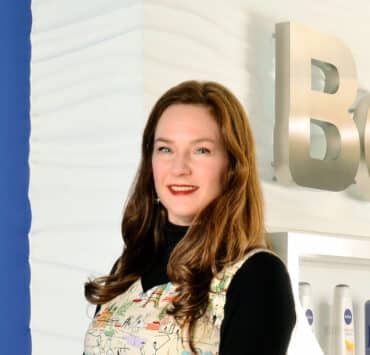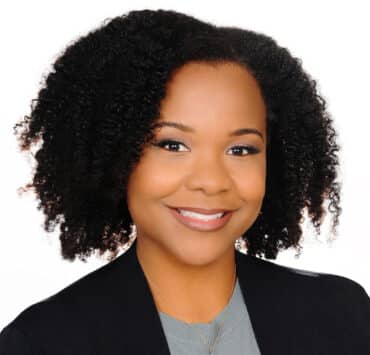|
Getting your Trinity Audio player ready... |
“I have an interesting background because for the majority of my career, I have straddled both human resources and the legal department,” says Mira Wolff, general counsel and chief human resources officer at California-based Venbrook Group. “It’s a unique blend, but I really am passionate in both areas.”
Wolff had also been involved in theater in her earlier years, which gives her an unexpected edge when it comes to the internal communication and training that falls under her purview. “I do a lot of presentations and webinars to employees, particularly on the HR side,” Wolff says. “So even though I don’t perform any more, when we do company-wide meetings, or I have the opportunity to do training or presentations, I enjoy being the orchestrator and choreographing the event. It gives me a chance to use my creative side.”
Wolff graduated from Southwestern Law School in 1992 with a focus in employment law. Her first in-house experience was at a mortgage company called Encore Credit before the mortgage crash in 2007. From there she worked at various e-commerce and tech companies including Newegg.com, Everbridge Inc., and Equator covering both human resources and legal bases every step of the way.
Wolff had her first experience in the insurance industry with Confie Seguros before moving onto Venbrook in 2016 where she has been ever since. Both Confie Seguros and Venbrook grow on an acquisition model, which helped her become used to the logistics of integration of acquired entities.
“I enjoy being the orchestrator and choreographing the event. It gives me a chance to use my creative side.”
Mira Wolff
“My background has helped me to support numerous acquisitions and integrate those entities into Venbrook,” Wolff explains. “That includes welcoming the new employees, getting them on to our platforms, and extending our employee engagement initiatives and culture to all of those entities as they become members of the family.”
Like so many other companies across the country, Venbrook has responded to the unprecedented changes caused by the pandemic. The majority of the employees worked from home in 2020 and 2021, and with the added challenge of being located all over the United States, Wolff has sought out creative ways to keep them all engaged and make them feel involved in the company’s culture.
“Not being able to get together in our offices really changed things,” Wolff elaborates. “Most of our employees were sitting in their houses including most of our leaders. In a lot of ways, it was a great equalizer, but it was also a challenge to find new ways to keep people feeling involved with Venbrook culture.”
Right from the start of the pandemic, Wolff and her HR team drafted a series of initiatives that would help ease the transition to working from home for the Venbrook workforce. Staying active was a major priority—they implemented events like the “Seventh Inning Stretch,” which consisted of scheduled time for company-wide yoga sessions twice a week.
The company also partnered with Cigna Health Corporation to test a new fitness and wellness app that tapped into employee competitiveness and incentivized them to stay healthy while team building. “We put teams together across the country for eight weeks during the Venbrook Fitness Challenge. Employees were able to track walking, running, yoga, weightlifting, biking, swimming, hiking, and other sports activities while competing against each other,” Wolff explains. “They were able to see how they were doing as a team and individually compared to the rest of the company. Employees were talking to each other who never would have met otherwise while we were all stuck at home.”
Despite the success that Wolff has had in keeping up the company morale and helping the workforce through this new way of work, she adamantly believes in the importance of an in-person work dynamic at least part of the time.
“We’ll definitely need a hybrid model. Without any time in the office, we may lose connectivity. The younger generation needs a chance to meet their mentors.”
Mira Wolff
As more and more companies decide to never go back to the office, Wolff worries that that decision could give the younger generation the short end of the stick. “Many of us who are further along in our careers are knowledgeable enough to handle working from home, but the younger generations will end up losing out on the experiences that we’ve all had, which got us here,” Wolff says. “Many young professionals across the country were in their first year of work this past year, and they started their jobs working in their parents’ living room rather than an office.”
Wolff predicts that as the world emerges from the pandemic, many companies will be able to embrace the lessons learned and pursue a new type of work environment that features the best of both worlds.
“We’ll definitely need a hybrid model. Without any time in the office, we may lose connectivity,” Wolff explains. “The younger generation needs a chance to meet their mentors, and they will have a better opportunity for this to happen if we eventually go back into the office for at least part of the time.”

